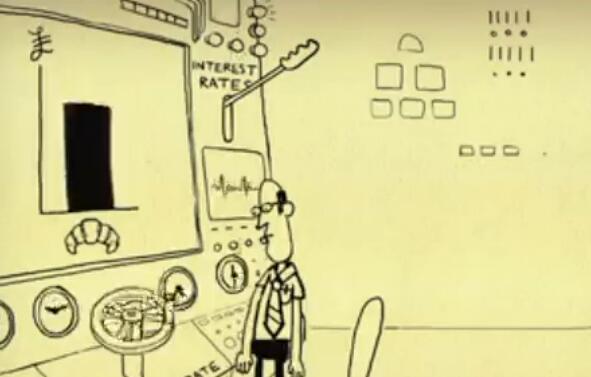60 Second Adventures in Economics—Number five: The Impossible Trinity.
《60秒經(jīng)濟學(xué)探奇》第五節(jié):三元悖論
Most countries trade with one another—which is usually pretty good for all involved
大多數(shù)國家同別國相互貿(mào)易,這通常對所有參與者都有好處,
but it does mean it's a bit harder for each to keep control of its own finances.
但這也意味著,每個國家更難控制本國財政。
There are three things that governments are particularly keen on.
政府特別熱衷于三件事。
They like to keep the exchange rate stable so that import and export prices don't suddenly jump around.
他們希望保持匯率穩(wěn)定,這樣進(jìn)出口價格就不會大幅跳動。

They also like to control interest rates so they can keep borrowers happy without upsetting savers.
他們還希望控制利率這樣就能讓借款人開心,不至于觸怒儲蓄者。
And they like to let money flow in and out of their country without causing too much disruption.
而且他們希望資金流進(jìn)出自己的國家,而不導(dǎo)致太多破壞。
But there's a problem when you try to do all of these at once.
但試圖一口氣做好所有這些,是有問題的。
Say for example, the Eurozone tries to lower its interest rate (to boost investment) and reduce unemployment.
例如,歐元區(qū)試圖降低利率,增加投資,減少失業(yè)率。
Money flows out to earn higher interest rates elsewhere.
資金會流出到利率更高的國家。
Exchange rates drop, which causes inflation, so the Euro interest rate is forced back up again.
匯率下降,導(dǎo)致通脹,這樣歐元利率又會被迫回升。
You can either fix your exchange rate and let money flow freely across national borders
你可以調(diào)控匯率,讓資金自由跨國界流動。
but have no control over your interest rates. Or control your interest and exchange rates
但此時無法控制利率。也可以控制利率和匯率。
but then you can't stop the capital flowing in and out.
但此時卻無法停止資金流入和流出。
But, like an overzealous triathlete—you can't do all three at once.
就像一個過分熱心的三項全能選手,你不能一口氣做三件事。












